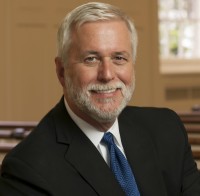Life after high school
I recently went to parents’ night at our local high school in Princeton, New Jersey. The way these evenings work is that parents walk through their children’s schedule, going from classroom to classroom. There we sit in remarkably uncomfortable chairs for a 15-minute introduction to the teacher and the course he or she teaches.
It’s been a very long time since I’ve been in a high school, and memories flooded over me.
As I shuffled down the halls looking at the posters advertising the next dance, a homecoming pep rally and tryouts for the spring musical, I was transported back 40 years to when I walked through high school halls in a blue-collar neighborhood on Long Island. I realize that youth culture has changed dramatically over these years. But the beige linoleum floors, the tiled state-hospital-like walls, the wide stairwells that beg for someone to slap down an armful of books—they are all the same. I walked past one locker that was dented—and prayed for the nerd whose head had been pushed into it. And don’t even get me started on the bathrooms. Have the graffiti artists developed no creativity after so many years?
Read our latest issue or browse back issues.
No one ever gets over high school. I am sure my stepsons’ teachers were saying important things that night as I sat in their classes, but I couldn’t stay focused. The familiar halls beckoned old memories that overtook my mind and soul.
I remembered that everyone in high school had to find his or her group. There were the cool kids, who formed the most rigorous union imaginable. They were a power bloc of football stars, cheerleaders and a few girls who knew guys in college—they determined their own elite membership. Then there were the rest of us: the student government do-gooders, the audiovisual geeks who pushed projectors down the halls, the druggies, actors, chess club types, fat kids, loners, brainiacs, musicians and those strange students who for some reason enjoyed sitting in the hall checking for passes. I was among the weirdest of all—one of those religious nuts who had a fiery Baptist preacher for a father.
You didn’t necessarily, or typically, enjoy being in your group. It felt mostly like an assignment. We wouldn’t have used these words in high school, but we were living out what we assumed was our calling. And it was very hard, next to impossible, to transition out of your group into another one. Wherever your young life fell in the freshman year was where you were destined to remain.
I haven’t been back to any of my high school reunions. I don’t even like going back to Long Island. But I do occasionally run into an old classmate who catches me up on the news. The star quarterback is about to retire after having been promoted to supervisor of the service department at the local Chevrolet dealership. His homecoming queen had a religious experience, became a nun and is now defying the pope. Go figure. The druggies didn’t do well later on, tragically, but the smart kids went on to college and were never heard from again. I like to imagine that the AV guys are zillionaires living in Silicon Valley, but I don’t know.
What I do know is that none of us are assigned to a station in life, and that is the last thing it means to receive a call from God.
Our calling, most of all, is to know and enjoy God. Anyone who responds to this grace-filled call discovers freedom from anyone or any social group that tries to be a god in our lives.
The original point of the Calvinist doctrine of predestination was to provide pastoral comfort. Our future is in God’s hands and no one else’s—including our own. That’s a comfort. I want to believe that our futures are determined by the God who in Christ was dying to love us. And mostly what God has predestined is not for us to be either stars or forgotten persons on the sidelines, but to experience holy, gracious love. And love always creates freedom.
Since that parents’ night, I’ve thought about the parishioners I’ve served over the years who assumed that their lot in life was God sanctioned and that therefore change was impossible. Some of them have settled into being successful star executives who are bored with all they worked hard to achieve. Some are abused wives who keep trying to justify why their husbands keep pushing their heads into the lockers. Others have become used to being angry, marginalized or anesthetized persons.
What they all have in common is the adolescent despair that assumes we’re given a lot in life—and that the best we can do is entertain ourselves into being numb to the disappointments of this lot. But to engage in spirituality is to realize just the opposite; we are all called to make the changes in life typical of grownups who now know about freedom.








